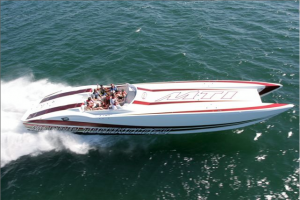 Five things to check during your first spring boating prep — because real problems aren’t always blatantly visible.
Five things to check during your first spring boating prep — because real problems aren’t always blatantly visible.
Low Speed
Check the idle speed, both in neutral and in gear. Rough, high or low idling might soon develop into stalling or chipped gears, which could compromise your safety were the engine to shut down while approaching a dock.
High Speed
Healthy engines should turn up to their maximum-rated rpm range. Spring, when the air is cool and before the boat is laden with the weight of crew and clutter, is the best time to check wide-open throttle rpm. Cool air is denser, providing better combustion, and less weight equals more rpm, so it’s OK if your springtime wide-open throttle reading is a tad high — it will drop as temperature and the weight of gear and crew increase. If the motor isn’t hitting the marks, you may have a drive train, fuel delivery or ignition problem waiting to leave you stranded.
Steering
If you lose steering approaching a jetty or during a crossing situation, the results could be fatal. Turn the wheel lock-to-lock in the slip. Do you get the same number of turns you’ve always had? (Write it down!) Perform the same test under way, feeling for mushiness, flat spots and resistance. The fix could be as simple as greasing a cable or adding fluid. Then again, a mechanical breakdown might be imminent. Investigate.
Penetrations
Caulking and fasteners don’t last forever. Once the boat is in the water, make a thorough inspection of all through-hulls, engine and drive train bolts, exhaust runs, drive seals, swim ladders, platforms and more. If you find a leak, you may have to haul the boat to fix it. Generally, this is the preferred alternative to becoming a scared man with a bucket 12 miles from the beach.
 Everything Else
Everything Else
There are those who would argue that marine electronics, the generator, the air-conditioner, the wash–down system and more are not critical systems. I might agree. But I would counter that we depend upon these things and expect them to work without giving them much thought. Consider how long it would take water from a broken live–well fitting to fill the bilge or how much time your escape plan would require in an electrical fire caused by too much resistance. Energize every accessory to see what’s what.
Source: www.boatingmag.com; Kevin Falvey; March 1, 2013.

